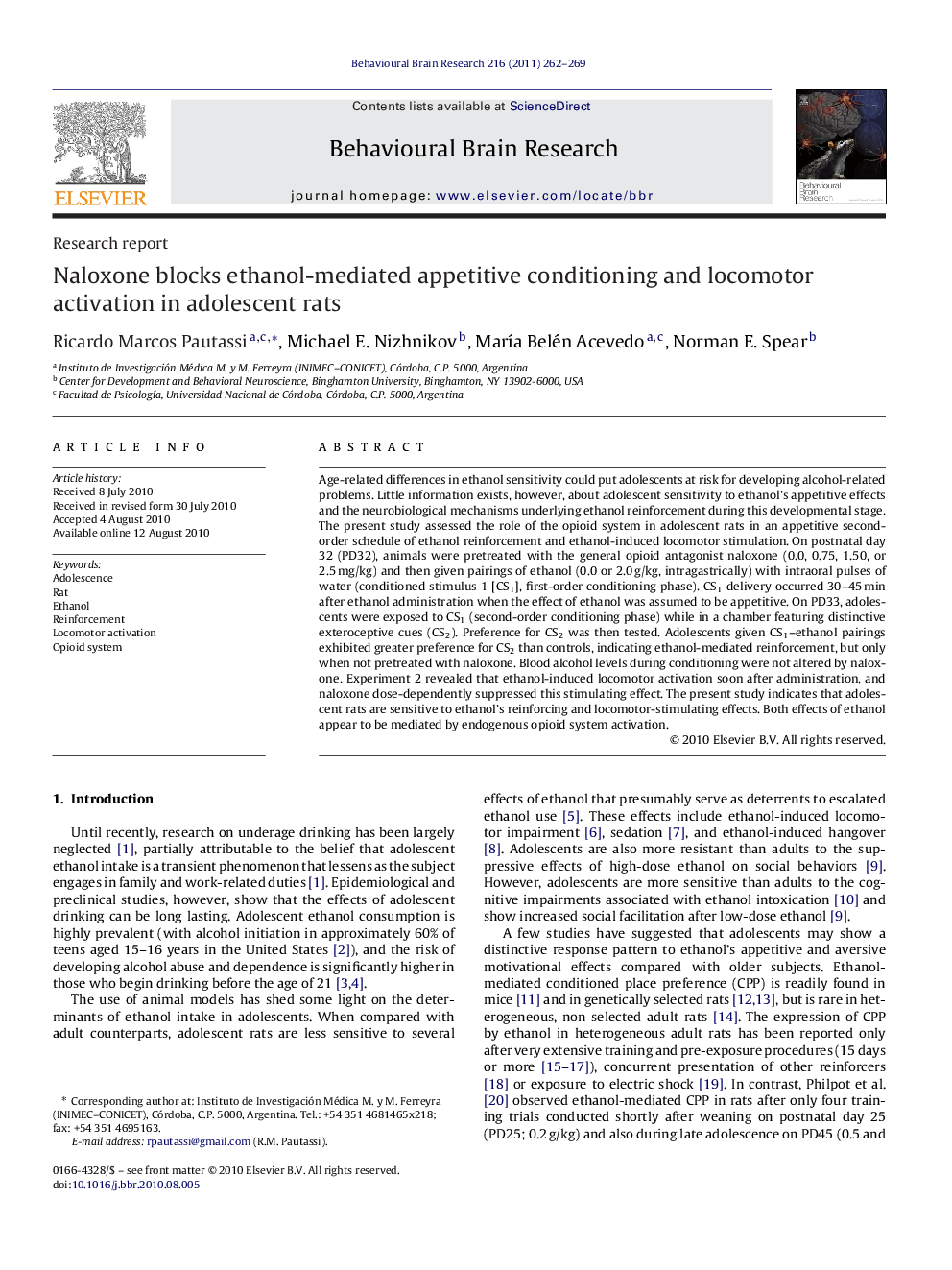| کد مقاله | کد نشریه | سال انتشار | مقاله انگلیسی | نسخه تمام متن |
|---|---|---|---|---|
| 4314008 | 1290020 | 2011 | 8 صفحه PDF | دانلود رایگان |

Age-related differences in ethanol sensitivity could put adolescents at risk for developing alcohol-related problems. Little information exists, however, about adolescent sensitivity to ethanol's appetitive effects and the neurobiological mechanisms underlying ethanol reinforcement during this developmental stage. The present study assessed the role of the opioid system in adolescent rats in an appetitive second-order schedule of ethanol reinforcement and ethanol-induced locomotor stimulation. On postnatal day 32 (PD32), animals were pretreated with the general opioid antagonist naloxone (0.0, 0.75, 1.50, or 2.5 mg/kg) and then given pairings of ethanol (0.0 or 2.0 g/kg, intragastrically) with intraoral pulses of water (conditioned stimulus 1 [CS1], first-order conditioning phase). CS1 delivery occurred 30–45 min after ethanol administration when the effect of ethanol was assumed to be appetitive. On PD33, adolescents were exposed to CS1 (second-order conditioning phase) while in a chamber featuring distinctive exteroceptive cues (CS2). Preference for CS2 was then tested. Adolescents given CS1–ethanol pairings exhibited greater preference for CS2 than controls, indicating ethanol-mediated reinforcement, but only when not pretreated with naloxone. Blood alcohol levels during conditioning were not altered by naloxone. Experiment 2 revealed that ethanol-induced locomotor activation soon after administration, and naloxone dose-dependently suppressed this stimulating effect. The present study indicates that adolescent rats are sensitive to ethanol's reinforcing and locomotor-stimulating effects. Both effects of ethanol appear to be mediated by endogenous opioid system activation.
Research highlights▶ Ethanol-induced appetitive second-order conditioning in adolescent rats. ▶ Ethanol induced motor behavioral stimulation in adolescent rats. ▶ Administration of naloxone inhibited the appetitive conditioning.▶ Naloxone dose-dependently blocked ethanol's motor activating effects. ▶ The opioid system mediates ethanol's reinforcing and motor activating effects.
Journal: Behavioural Brain Research - Volume 216, Issue 1, 1 January 2011, Pages 262–269